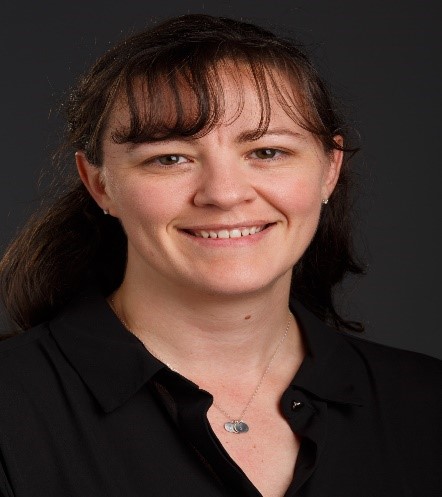2018 Annual Meeting
Applying Epidemiology Across the Lifespan to Improve Health Care,
Inform Health Policy and Enhance Population Health
CINCINNATI, OHIO | SEPTEMBER 23-25 2018
Agenda
Concurrent Session 3
Tuesday, September 25 | 2:30 - 4:00 PM
Concurrent Session 3A: Dynamic Prediction Methods to Advance Precision Epidemiology
Location: University of Cincinnati, Medical Sciences Building (MSB), Kresge Auditorium
Chair: Rhonda Szczesniak, PhD, Associate Professor, Division of Biostatistics and Epidemiology, Cincinnati Children’s Hospital Medical Center, Department of Pediatrics, University of Cincinnati College of Medicine
Abstract:
Precision epidemiology relies on large-scale longitudinal studies and the accuracy of dynamic prediction models. In this session, we will describe dynamic prediction models based on two widely applied statistical approaches known as landmarking and joint modeling, focusing on their utility in precision epidemiology. The session will highlight various longitudinal study settings and challenges commonly encountered in dynamic prediction modeling, ranging from patient registry cohorts to biomarker studies. The session will highlight successes in the epidemiologic applications and caveats based on the approaches.
Brief Biography:

Rhonda Szczesniak, PhD is an Associate Professor of Pediatrics in the Division of Biostatistics and Epidemiology at Cincinnati Children’s Hospital and at the University of Cincinnati. Her work focuses on development and application of statistical methods to analyze medical monitoring data as functional data. She collaborates with researchers around the world to improve how large longitudinal databases are utilized to forecast periods of rapid disease progression. Her epidemiologic areas of research focus on chronic lung diseases and disorders with active projects involving the US Cystic Fibrosis Foundation Patient Registry and translation of prediction models into point of care. Other active projects include trans-generational research of diabetes in pregnancy and ambulatory blood pressure monitoring.
Speakers:
Ruth Keogh, DPhil, London School of Hygiene & Tropical Medicine, London, United Kingdom
“Landmarking for Dynamic Predictions of Outcome: Examples from Patient Registries”
Abstract:
The focus of this talk will be on how to develop dynamic prediction models using the ‘landmarking’ approach to provide personalised estimates of a patient’s life expectancy given their current health status. Examples will be given using longitudinal data from national registries for patients with cystic fibrosis in the US and UK.
Brief Biography:

Ruth Keogh, DPhil joined the Medical Statistics Department at the London School of Hygiene and Tropical Medicine (LSHTM) in 2012 as faculty of Epidemiology and Population Health. She studied Mathematics and Statistics at the University of Edinburgh and received an MSc and a DPhil in Applied Statistics at the University of Oxford. Prior to joining LSHTM she worked at the MRC Biostatistics Unit in Cambridge and the Cancer Epidemiology Unit.
Eleni-Rosalina Andrinopoulou, PhD, Erasmus, MC, & Rotterdam Ophthalmic Institute, Rotterdam, The Netherlands
"Making Dynamic Predictions Flexible: Monitoring Post-Surgical Outcomes”
Abstract:
Dynamic predictions obtained by the joint modelling of longitudinal and survival framework assuming a time-varying effect for the association parameter will be presented. The motivation comes from a study which includes patients who received a human tissue valve in the aortic position and the main focus is to investigate whether the effect of the echocardiographic measures on survival varies in time.
 Eleni-Rosalina Andrinopoulou, PhD received her Doctorate in Biostatistics from Erasmus Medical Center in the Netherlands in 2014 and has studied as a post-doctoral fellow with Dr. Dimitris Rizopoulos in the Department of Biostatistics, where she now has a permanent position. Her research was motivated by joint modeling of longitudinal and survival data arising from heart valve studies. She has received awards for her work in this area, including funding from the International Society for Clinical Biostatistics. Dr. Andrinopoulou collaborates with researchers both locally and abroad on epidemiological studies in cardiovascular and lung diseases. She teaches quantitative research courses regularly through the NIHES MSc Program at Erasmus. She has provided workshops and other extended courses in advanced longitudinal data analysis to numerous fellows and biomedical faculty. Most recently, she gave a statistics seminar at the Institute of Statistics, Biostatistics and Actuarial Sciences in Belgium on joint modeling of longitudinal survival data.
Eleni-Rosalina Andrinopoulou, PhD received her Doctorate in Biostatistics from Erasmus Medical Center in the Netherlands in 2014 and has studied as a post-doctoral fellow with Dr. Dimitris Rizopoulos in the Department of Biostatistics, where she now has a permanent position. Her research was motivated by joint modeling of longitudinal and survival data arising from heart valve studies. She has received awards for her work in this area, including funding from the International Society for Clinical Biostatistics. Dr. Andrinopoulou collaborates with researchers both locally and abroad on epidemiological studies in cardiovascular and lung diseases. She teaches quantitative research courses regularly through the NIHES MSc Program at Erasmus. She has provided workshops and other extended courses in advanced longitudinal data analysis to numerous fellows and biomedical faculty. Most recently, she gave a statistics seminar at the Institute of Statistics, Biostatistics and Actuarial Sciences in Belgium on joint modeling of longitudinal survival data.
Brandie Wagner, PhD, University of Colorado, Denver, Colorado
“Dynamic Predictions using Longitudinally Collected Antibodies—Who is at Risk for Rheumatoid Arthritis?”
Abstract:
The focus of this talk will be the application of a joint model to longitudinal antibody measurements and time to develop rheumatoid arthritis. The dataset consists of multiple antibody measures, with a non-linear functional form over time and few measurements per subject, all of which complicate the application of common joint model software. The talk will discuss the caveats of the dynamic predictions from the joint model and comparison to a survival analysis with time varying covariates.
Brief Biography:
 Brandie Wagner, PhD enjoys helping clinical and epidemiologic investigators make sense of their data and the ability to contribute to health-related science. She loves that she is able to work on a wide range of projects and collaborate with investigators in many different research areas. As an Associate Professor in the Department of Biostatistics and Informatics, Colorado School of Public Health at the University of Colorado, she has worked closely with investigators both on and off campus in many different application areas. These collaborations have been successful as evidenced by continued grant funding and co-authored publications, some of which have had a large impact on the field. Her methodological research represents a sustained and focused contribution in the areas of proteomics/biomarker development, microbiota data analysis and joint models with many different areas of application. The unique data characteristics of microbiome data have resulted in her familiarity with zero-inflated and joint models. She has been active in longitudinal analysis for non-normal outcomes and development of joint models for the purpose of assessing longitudinal associations for outcomes with mixed distributions.
Brandie Wagner, PhD enjoys helping clinical and epidemiologic investigators make sense of their data and the ability to contribute to health-related science. She loves that she is able to work on a wide range of projects and collaborate with investigators in many different research areas. As an Associate Professor in the Department of Biostatistics and Informatics, Colorado School of Public Health at the University of Colorado, she has worked closely with investigators both on and off campus in many different application areas. These collaborations have been successful as evidenced by continued grant funding and co-authored publications, some of which have had a large impact on the field. Her methodological research represents a sustained and focused contribution in the areas of proteomics/biomarker development, microbiota data analysis and joint models with many different areas of application. The unique data characteristics of microbiome data have resulted in her familiarity with zero-inflated and joint models. She has been active in longitudinal analysis for non-normal outcomes and development of joint models for the purpose of assessing longitudinal associations for outcomes with mixed distributions.